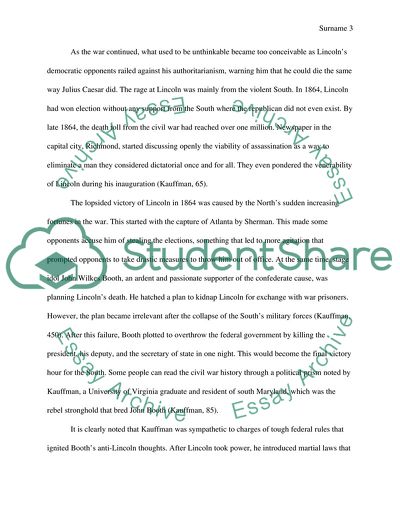Cite this document
(American Brutus by Michael Kauffman Book Report/Review, n.d.)
American Brutus by Michael Kauffman Book Report/Review. Retrieved from https://studentshare.org/history/1818356-american-brutus-john-wilkes-booth-and-the-lincoln-conspiracies-by-michael-w-kauffman
American Brutus by Michael Kauffman Book Report/Review. Retrieved from https://studentshare.org/history/1818356-american-brutus-john-wilkes-booth-and-the-lincoln-conspiracies-by-michael-w-kauffman
(American Brutus by Michael Kauffman Book Report/Review)
American Brutus by Michael Kauffman Book Report/Review. https://studentshare.org/history/1818356-american-brutus-john-wilkes-booth-and-the-lincoln-conspiracies-by-michael-w-kauffman.
American Brutus by Michael Kauffman Book Report/Review. https://studentshare.org/history/1818356-american-brutus-john-wilkes-booth-and-the-lincoln-conspiracies-by-michael-w-kauffman.
“American Brutus by Michael Kauffman Book Report/Review”, n.d. https://studentshare.org/history/1818356-american-brutus-john-wilkes-booth-and-the-lincoln-conspiracies-by-michael-w-kauffman.


